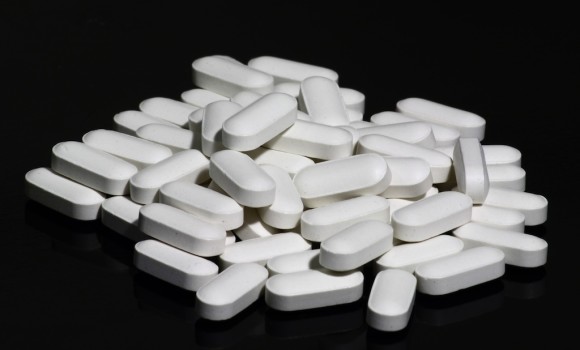
The Dolomite mountains of Italy are made of calcium carbonate (aka dolomite). Get 1,000-1,200 mg. of calcium a day so you, too, can stay standing for future generations.
Have you heard the rumor that babies take calcium from their mothers’ teeth? While that’s not technically true, any calcium you take in will go to the baby first, with you getting whatever’s left. So it’s important to get at least 1,000 mg of calcium every day for the sake of your own bone density, so you don’t suffer from osteoporosis (aka. shrinking old lady syndrome, or Achy Breaky Pelvis). You also need to get 600 IU of vitamin D every day to help your body absorb the calcium.
Calcium supplements can also reduce your risk of pre-eclampsia, premature labor and kidney stones. Prenatal supplements usually don’t contain much calcium because it can hinder the absorption of other vitamins and minerals, especially iron. You can get your calcium through food, additional supplements, or a combination. Avoid getting more than 2,500 mg. of calcium a day from all sources.
If you take calcium supplements, avoid taking them an hour before or after your prenatal and don’t bother taking more than 500 mg at a time, because your body isn’t able to absorb more than that all at once. Calcium citrate is better absorbed by your body than other calcium forms, such as calcium lactate or calcium carbonate (found in antacids). If you take calcium carbonate, be sure to take it with food to help your guts absorb it effectively. Avoid supplements containing bone meal, dolomite or coral because these sometimes contain small amounts of lead (!). It’s a good idea to take calcium supplements with food, to help absorption (try taking your calcium supplement with meals, then your prenatal vitamin before bed). Vitamin D is necessary for calcium absorption, and most Americans are deficient. You should get about 200 IU (5 mcg) of vitamin D a day. Most calcium supplements also contain D. If you are having leg cramps, ask your health care provider about taking an additional mineral supplement containing extra calcium, magnesium and vitamin D.
Calcium is in most dairy products like milk, cheese and yogurt, and also in fortified orange juice, canned fish with bones (like salmon) and some mineral waters (like Gerolsteiner). Notably, cola-based sodas appear to inhibit calcium absorption; researchers think this effect may be related to the phosphoric acid or caffeine in soda.
Skim, lowfat, whole or chocolate milk 300 mg per 8 oz.
Calcium-fortified orange juice, soy, rice or almond milk 200‒400 mg per 8 oz. (check the nutrition information label)
Broccoli, cooked 180 mg per cup
Swiss cheese 272 mg per oz.
Cheddar cheese 204 mg per oz.
American cheese 174 mg per oz.
Cottage cheese 77 mg per half cup
Yogurt 345–415 mg per cup
Canned oily fish with bones 200–300 mg per 3-oz. serving such as salmon and sardines
Tofu prepared with calcium 50–250 mg per 3-oz. serving chloride or sulfate
Leafy greens such as kale, collards or turnip greens 100–170 mg per half cup








Leave a Reply